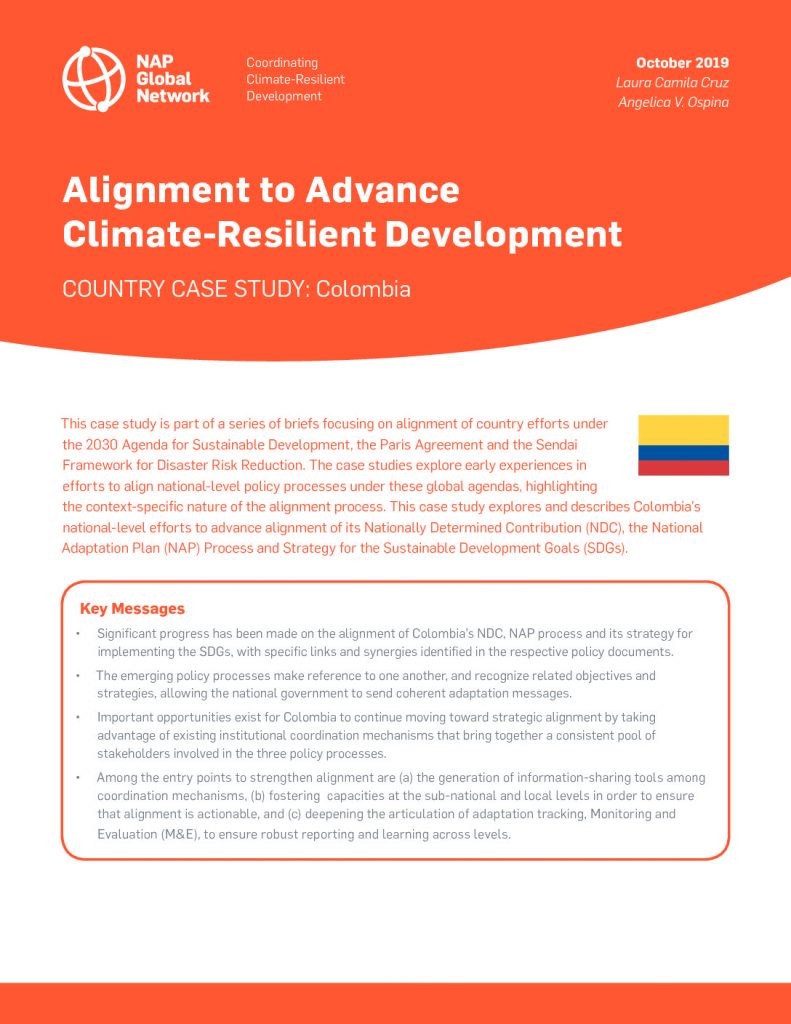
Alignment to Advance Climate-Resilient Development
COUNTRY CASE STUDY: Colombia
This case study is part of a series of briefs focusing on alignment of country efforts under the 2030 Agenda for Sustainable Development, the Paris Agreement and the Sendai Framework for Disaster Risk Reduction. The case studies explore early experiences in efforts to align national-level policy processes under these global agendas, highlighting the context-specific nature of the alignment process. This case study explores and describes Colombia’s national-level efforts to advance alignment of its Nationally Determined Contribution (NDC), the National Adaptation Plan (NAP) Process and Strategy for the Sustainable Development Goals (SDGs).
Key Messages
- Significant progress has been made on the alignment of Colombia’s NDC, NAP process and its strategy for implementing the SDGs, with specific links and synergies identified in the respective policy documents.
- The emerging policy processes make reference to one another, and recognize related objectives and strategies, allowing the national government to send coherent adaptation messages.
- Important opportunities exist for Colombia to continue moving toward strategic alignment by taking advantage of existing institutional coordination mechanisms that bring together a consistent pool of stakeholders involved in the three policy processes.
- Among the entry points to strengthen alignment are (a) the generation of information-sharing tools among coordination mechanisms, (b) fostering capacities at the sub-national and local levels in order to ensure that alignment is actionable, and (c) deepening the articulation of adaptation tracking, Monitoring and Evaluation (M&E), to ensure robust reporting and learning across levels.
Read more
- Alignment to Advance Climate-Resilient Development | Country Case Study: Sri Lanka
- Alignment to Advance Climate-Resilient Development | Country Case Study: Kenya
- Webinar | Strengthening Alignment Between ‘Adaptation to Climate Change – Disaster Risk Management – Sustainable Development’
- Overview Brief 1 | Introduction to Alignment
- Overview Brief 2 | Getting Started on Alignment
- Overview Brief 3 | Country Perspectives on Alignment of the National Adaptation Plan (NAP) process and Nationally Determined Contributions (NDCs)
- Report | Adaptation Actions in NDC Partnership Plans: Opportunities for Alignment with NAP Processes
Publisher: International Institute for Sustainable Development (IISD)